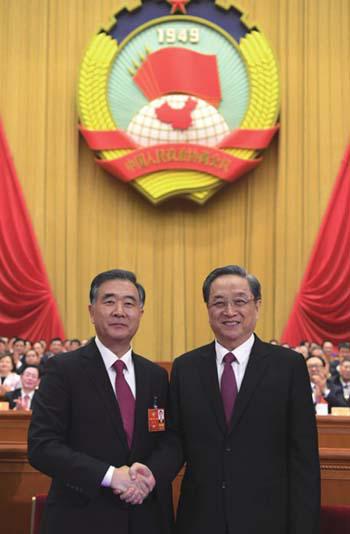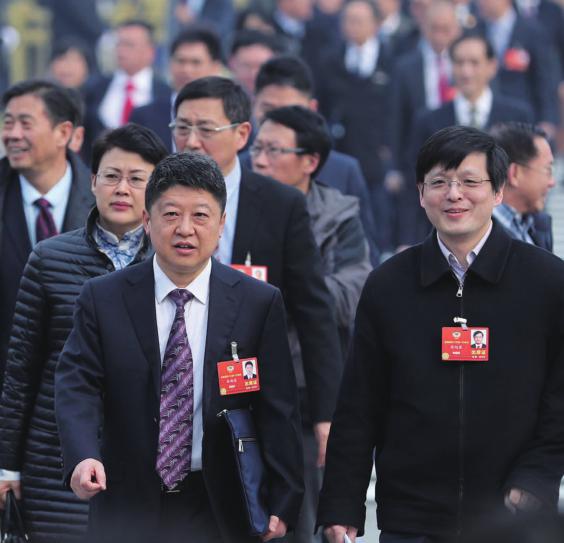Advisory Body on Road to New Start
2018-12-04

The First Session of the 13th National Committee of the Chinese Peoples Political Consultative Conference (CPPCC), Chinas top political advisory body, closed in Beijing on March 15. Political advisors endorsed a resolution on an amendment to the CPPCC Charter at the closing meeting in addition to a resolution on the work report of the Standing Committee of the 12th CPPCC National Committee, a report on the examination of proposals and a political resolution.
Xi Jinping Thought on Socialism with Chinese Characteristics for a New Era has been written into the amended charter as a guiding theory of the CPPCC.
The inclusion of the idea of “consultative democracy” is another highlight of the revision. Consultative democracy is a model and strength unique to Chinas socialist democracy, according to the amended chapter. It states that the CPPCC is a major channel for socialist consultative democracy and a specialist consultative body.
Wang Yang, a member of the Standing Committee of the Political Bureau of the 19th Central Committee of the Communist Party of China (CPC), was elected chairman of the 13th CPPCC National Committee on March 14, as were its 24 vice chairpersons and a 300-member Standing Committee.
What Are the CPPCCs Functions?
The CPPCC is an organization in the patriotic united front of the Chinese people, an important organ for multiparty cooperation and political consultation under the leadership of the CPC, and an important means of promoting socialist democracy in Chinas political activities.
It is neither a body of state power nor a policymaking organ, but an important platform from which various political parties, peoples organizations, and people of all ethnic groups and from all sectors of society work together by democratically participating in state affairs.
In practice, CPPCC members serve as advisors to the government as well as legislative and judicial organs, putting forward proposals on major political and social issues in the worlds most populous nation and second largest economy. The main functions of the CPPCC are to conduct political consultation, exercise democratic supervision and participate in the deliberation and administration of state affairs.
Who Makes up the CPPCC Membership?
CPPCC members come from Chinas various walks of life and ethnic groups.
At present, the CPPCC consists of representatives of the CPC and non-communist parties, people without party affiliation, and representatives of peoples organizations, ethnic minorities and various social strata.
It also has representatives of compatriots from Hong Kong Special Administrative Region, Macao Special Administrative Region and Taiwan, as well as returned overseas Chinese and specially invited people. The 13th CPPCC National Committee has 2,158 members.
Most of the CPPCC members are experienced political figures, social celebrities and experts and scholars specializing in various fields. They can put forward proposals to peoples congresses and the government, offering comments and suggestions on major political and social issues facing the country. A department in charge of handling proposals is obliged to give a reply to each proposal.
